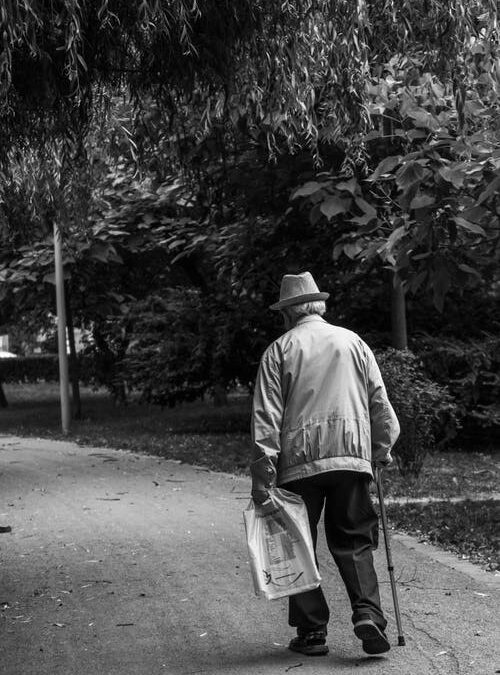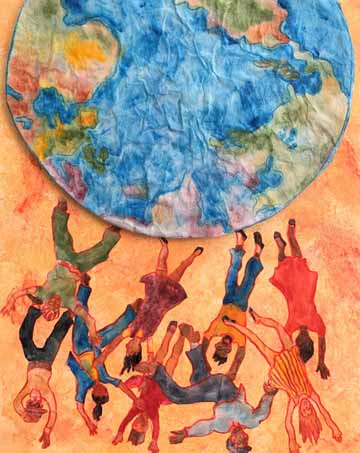
Jun 9, 2020
Yes, the pandemic is a time of anxiety about money and health, and huge uncertainty. Yes, we all prefer in-person meetings to zoom meetings.
Despite all that, is it possible to have a perfect day, or even a perfect hour, now in the pandemic? If so, what would it be like?
For me, the perfect day would include some kind of achievement, particularly overcoming some limitation that had been with me for a while. I think of practicing my cello and working on a piece of music that start out as impossible for me to play. Over a period of weeks or months I work on it. To my surprise, seemingly all at once, it becomes possible to play “perfect enough” for me and my teacher. And then on to the next more difficult piece to work on.
The perfect day would include some work challenge. I get in the flow. I develop new insights that surprise me. I make some progress towards a goal.
The perfect day might include the best eggplant parmesan or chocolate cake I have had in a long time. Or a bicycle ride in a spectacular place in perfect weather. Or a really meaningful conversation with a friend.
However, none of these experiences would be perfect unless:
- I pay attention and notice them
- I appreciate them
What is the single best first step you can take now to create your own perfect day?

Jun 2, 2020
For many of us, the pandemic is a time we are alone or lonely.
I miss being with my friends, especially giving and receiving hugs. In addition to Zooming with friends now, I have recently reached out to some of my connections on LinkedIn. I tend to be shy, so this was way beyond my comfort zone. But I have greatly enjoyed meeting and talking with new people.
I am extremely fortunate to have a great life partner. Lucy Rose Fischer and I have worked and played together for 58 years so far (married 54 of those years). The pandemic has affected our activities but not our relationship. We have both been working out of our home for the last six years, so there was no adjustment to the pandemic for us.
I know firsthand that many people are quite lonely now, especially if they are single. I see it here in the senior housing facility in downtown Minneapolis where I live. Many of my neighbors are widows or divorcees and do not have life partners. Some couples are forced to live apart because one of them needs to live in the assisted living facility upstairs while the other lives in independent living.
Many of us moved here to be part of a community that shared great activities. Sharing with others would facilitate friendships. Now many activities are cancelled; the only activities offered are through zoom. We are not permitted to gather indoors or outside in order to prevent contacting or spreading the pandemic virus.
Are you more alone or lonely now? Here are some thoughts:
- Would you like to identify candidates for friendships? A good candidate will be a great listener, respectful, supportive, and make the time to spend with you on a frequent basis. Any community you belong to or activity you participate can be a source of prospective friends. Where can you go looking?
- You should give before you get. Just as you want someone with the right qualities, you have to have those qualities as well. How can you be a great listener, be respectful and supportive?
- What can you do to take the initiative? If you wait for the right person to contact you, it might never happen.
- How can you prioritize your time for friendships? Intimate relationships, especially with a significant other, will take more time and energy to build and maintain than a more casual relationship. But any relationship will decline in quality and intensity unless you continually invest in it.
- How can you find the right medium to communicate? Traditionally, people used telephones to communicate if they could not get together face-to-face, and that worked well. Communicating works even better if you see the person you are talking with. You will need a device with a camera, which can be a smart phone, an ipad or computer. Most computers now come with built-in cameras. If not, you can purchase and attach one. If you are not set up to do this, who can help you purchase, install, and learn the technology to communicate visually?
If loneliness is sometimes a problem for you, what is the single best first step you can take now to banish it?

May 19, 2020
Our lives have changed in many ways during the pandemic. Our natural inclination is to continue doing the same things in the same way, partly in the hope that any problems will go away soon.
The reality is that there are always changes in our lives – in our work, relationships, finances, and health. Some of those changes are beyond our control. What we can control is how we respond and adapt, even in the face of uncertainty about how things will work out.
For me, a big issue in my early 70’s was what I wanted to do about my love of music, besides listening to it on the radio. I considered taking up the cello and getting good enough to play Beethoven string quartets. But I faced the issue of my own aging. Playing at that level would take considerable time and energy. Was I too old to start – mentally and physically? What if I developed arthritis, got sick or died, would it have been worth it? I decided to do it anyway. Now after listening to YoYo Ma on the radio, I find my own cello-playing frustrating. Even so, it brings me joy.
During the pandemic and at other times of change we have choices to make – about our money, time, and activities.
Here is an exercise you can do to help you make decisions and minimize regret afterwards.
Imagine that the epidemic is now over, and you are looking back at your decisions. For each alternative choice that you had (e.g. using your time to start a new hobby, exercise program, musical instrument or make a major purchase), did you make the right decision?
- What if the quarantine is over very soon?
- What if the quarantine goes on for a very long time?
You may also want to consider
- What choice that you make now will increase the quality of your life while you are waiting for the epidemic to end?
- What choice that you make now will provide joy and meaning for your whole life?
Remember that no choice is a choice.

May 12, 2020
I am busier than ever, in spite of the pandemic. I don’t leave my apartment except for occasional grocery shopping trips, walks with my wife, and bicycle rides. I retired from my 34-year financial planning career last December. I am fortunate that I can use my extra time to establish a new career as a retirement coach. My life feels full and fulfilling.
My friend Mitch is of retirement age and still working in his teaching / research job. He collaborates with faculty at the University over Zoom. His Zoom meetings seem like a pale shadow compared to his intensive, in-person discussions of the past. And his laboratory is shut down. He waits impatiently for the pandemic to be over.
Time will pass for Mitch and me and all of us. Will we look back at this as a meaningful time spent with our families or not?
We are all semi-quarantined. We have less control now over where we spend our time. But we still have a lot of control over how we spend it.
Time is one of our most important resources. We can spend it as we wish. But the deal is – we use it or lose it.
You may also be facing any number of challenges now, such as:
- Feeling stuck
- Dealing with illness or the fear of illness – for yourself and others
- Not enough money now or in the future
- Loneliness
- Not being able to do what you really want to do
Here are some questions for you:
- Which of these challenges is most important to you right now?
- How can you use your creativity to figure out how to proceed?
- Whom should you be talking with to figure out how to proceed?
- How can you use your time differently to make more progress on those challenges?

May 5, 2020
The three biggest fears people have during this Covid-19 outbreak are running out of money, suffering through health problems, and not having what to do.
You cannot make those fears go away entirely, but you can manage them. Here is how to take a proactive approach. For each of these three fears ask yourself:
- What specifically are you afraid of? This may be the most challenging and important step in the process. A fear can fester if it is not addressed. Writing your answer down in as much detail as possible will help you to articulate it.
- What are the facts? You may need to do some research to discover the reality of the current situation
- What do you have control over, and what can you do differently?
Talking this through with a friend or professional can be a huge help in dealing with your fears. To be effective the person must be empathetic and a good listener. Having some experience or skill in this area will also help.
Based on this exercise, what is one small step you can take today to get your fears more under control?
Once your fears are more under your control, what is one big step you can take to improve the quality of your life?





